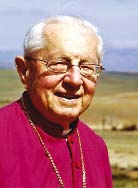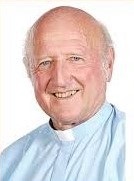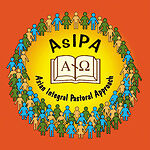Genesis of AsIPA
During the 5th Plenary Assembly the Asian Bishops expressed the response of the Church, at the level of its very being, to the demands of evangelization in the third millennium: the Church (must become) a “Communion of communities where laity, religious and clergy recognize and accept each others as sisters and brothers…it must be a Participatory Church …” (FABC IV, 8.1.1-2)
Part of this vision on a “New way of Being Church” was the growing concern to discover a more contexualized pastoral approach that would take into consideration the cultures and needs of the local churches. In various meetings and during visitation with individual dioceses and church leaders, the FABC OL was regularly requested to introduce and share materials that would meet the formation needs of people today.
Among the many materials was the approach, developed by the Lumko Missiological Institute associated with the Bishops Conference in South Africa. The FABC OL facilitated a number of Lumko exposure Programs in Asia and discovered that there were many positive responses.
Because of the level of interest in Lumko, one of the workshops at the 5th Plenary Assembly of FABC in Bandung, Indonesia in 1990 was devoted to introducing some of this material. As a result of the enthusiasm of the bishops who participated, the FABC OL was requested to organize 2 international Asian level Lumko training courses. The first of these was co-sponsored with the Pastoral Center Taiwan and was in Mandarin, the second took place in Thailand and was conducted in English. In November 1993, a Consultation sponsored by the FABC offices of Human Development and Laity was held in Malaysia. It was during this consultation that AsIPA (Asian Integral Pastoral Approach) was born. The FABC Consultation in 1993 gave a positive evaluation of the formation programs conducted by the FABC OL and encouraged them to continue the adaptation process of Lumko materials into Asian context and to develop its own materials.
AsIPA is the achievement of a long process: As the importance of the role of the laity became more accepted, the local Churches also realized there is a corresponding need for lay formation, so that lay people could play their rightful role in the Church. In some early attempts at lay formation, the emphasis was on an academic approach which led to the realization that a different model of formation was needed:
A model that would incorporate the principles of adult education, respect for the experience of the participants and be open to the real situation and needs of the local community.
Current Status of AsIPA
The Second AsIPA General Assembly in October (2000) gave a clear picture how far the effort has gone. It gathered 105 participants from 12 Asian countries and Papua New Guinea for an exchange of experiences, to share locally developed materials and to deepen into the methodology. The Assembly identified 4 main challenges: inculturation, becoming agents for change, harmony and dialogue, and collaborative style of leadership. It also recommended that a general assembly of diocesan and national teams be held once every 3 years to be a continuous forum of exchange and deepening in the vision of a Participatory Church. The first General Assembly was in 1996 attended by trainers from 8 Asian countries and Papua New Guinea.
An Editorial Board was set up to develop new training booklets. In some countries, locally produced texts are also being used and through the Editorial Board, some of those materials are designed to be suitable for the wider Asian formation sessions. After the second General Assembly, an Editorial Consultation Network was created to meet increasing demands from local teams.
To date, the different AsIPA courses at Asian, national and diocesan levels have reached almost all the member conferences of the FABC, in 17 countries. There are AsIPA teams in 12 countries to coordinate efforts. Six are national teams. The FABC-OL AsIPA Desk has been taking charge of international coordination and organization to form the Asian facilitating teams.
Founding Fathers

Bishop Oswald Hirmer

